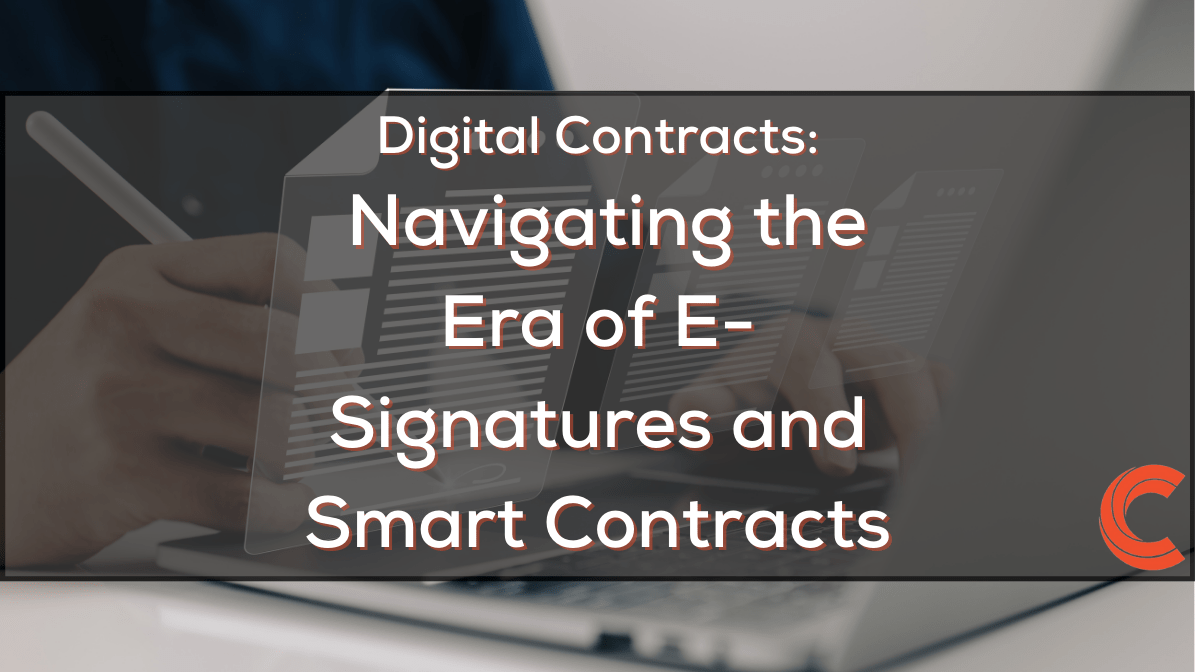In the ever-evolving landscape of business transactions, the traditional realm of paper contracts is making way for the digital frontier. This guide invites you to step into the era of digital contracts, where electronic signatures and smart contracts are reshaping the way agreements are formed, executed, and enforced. Explore the legal validity, implications, and the transformative potential of these digital innovations in the realm of contracts.
1. The Evolution of Contracts in the Digital Age
From Paper to Digital:
- Understand the transition from traditional paper contracts to digital formats, streamlining processes and enhancing efficiency.
Benefits of Digital Contracts:
- Explore the advantages of digital contracts, such as increased speed, reduced costs, and improved accessibility.
2. Electronic Signatures: Legality and Implementation
Understanding E-Signatures:
- Delve into the legal validity of electronic signatures. Learn about the regulatory frameworks that recognize and govern their use.
Implementation Best Practices:
- Explore best practices for implementing electronic signatures, ensuring compliance with legal standards and security measures.
Authentication and Security:
- Address concerns related to the authentication and security of electronic signatures, emphasizing the importance of a robust verification process.
3. Smart Contracts: The Future of Digital Agreements
Defining Smart Contracts:
- Gain insights into the concept of smart contracts, self-executing agreements with embedded code that automate and enforce contractual clauses.
Blockchain Technology:
- Understand the role of blockchain technology in the implementation and security of smart contracts, ensuring transparency and immutability.
Use Cases and Applications:
- Explore real-world use cases and applications of smart contracts across various industries, from finance to supply chain management.
4. Legal Validity and Challenges
Enforceability of Digital Contracts:
- Examine the legal enforceability of digital contracts and the factors that contribute to their recognition in legal proceedings.
Challenges and Risks:
- Address potential challenges and risks associated with digital contracts, including issues related to fraud, data breaches, and technological vulnerabilities.
5. Regulatory Compliance and Standards
Compliance with Global Standards:
- Navigate the global regulatory landscape governing digital contracts. Ensure compliance with regional and industry-specific standards.
EU eIDAS Regulation:
- Explore the impact of the EU eIDAS Regulation on electronic signatures and their legal standing within the European Union.
6. Integrating Digital Contracts into Business Processes
Adopting Digital Workflows:
- Implement digital workflows that seamlessly integrate electronic signatures and smart contracts into your business processes.
Employee Training and Awareness:
- Foster employee awareness and provide training to ensure a smooth transition to digital contract processes.
7. Future Trends and Innovations in E-Signatures
Artificial Intelligence (AI):
- Explore the role of AI in enhancing the efficiency and intelligence of digital contracts, including automated contract review and analysis.
Interoperability:
- Consider the evolving landscape of interoperability between different digital contract platforms and technologies.
Conclusion: Embracing the Future of Contracts and E-Signatures
As we navigate the era of digital contracts, the landscape of agreements is transforming before our eyes. From the legitimacy of electronic signatures to the self-executing nature of smart contracts, businesses are entering a new phase of efficiency and innovation. For personalized guidance on navigating the digital age of contracts, contact Carbon Law Group. Our legal professionals specialize in contract law and digital innovations, offering tailored solutions to ensure your transition to digital contracts is not only legally sound but strategically advantageous. Embrace the future of contracts confidently—where tradition meets technology.





